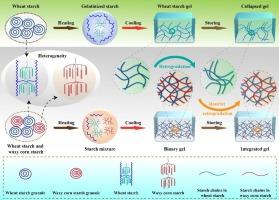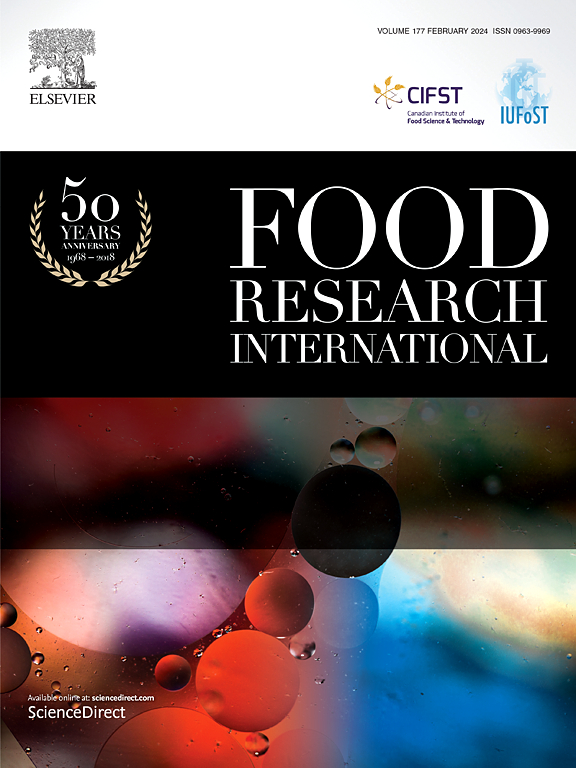Heterogeneous amylopectin delays short-term retrogradation via fabricating a binary gel network within steamed cold noodles
IF 7
1区 农林科学
Q1 FOOD SCIENCE & TECHNOLOGY
引用次数: 0
Abstract
This study aimed to investigate the influence of heterogeneous amylopectin (waxy corn starch, WCS) on the retrogradation of wheat starch (WS), hoping to provide a new idea for alleviating the retrogradation of steamed cold noodles. The chain length distribution data confirmed the formation of a binary gel network resulting from the heterogeneous amylopectin structure between WCS and WS. With the increase of WCS concentration, the modulus and setback value of WS-WCS binary gel decreased, which was attributed to the newly built network structure hindering the aggregation of WS molecules. Consistently, the results of water distribution and micromorphology showed that the addition of heterogeneous amylopectin improved the water-holding capacity of the system and made the network structure more dense. When the WCS content was added to 20 %, the retrogradation degree and B-type crystallinity of binary gel decreased from 13.83 % and 9.68 % to 6.17 % and 2.17 %. Besides, compared with pure WS, the hardness and stretching distance of steamed cold noodles of 20 %WCS respectively decreased and increased by 57.82 % and 20.80 % after 7 days of storage. In summary, WCS could effectively improve the storage stability of steamed cold noodles by forming a new network structure to inhibit the intermolecular rearrangement of wheat starch.

求助全文
约1分钟内获得全文
求助全文
来源期刊

Food Research International
工程技术-食品科技
CiteScore
12.50
自引率
7.40%
发文量
1183
审稿时长
79 days
期刊介绍:
Food Research International serves as a rapid dissemination platform for significant and impactful research in food science, technology, engineering, and nutrition. The journal focuses on publishing novel, high-quality, and high-impact review papers, original research papers, and letters to the editors across various disciplines in the science and technology of food. Additionally, it follows a policy of publishing special issues on topical and emergent subjects in food research or related areas. Selected, peer-reviewed papers from scientific meetings, workshops, and conferences on the science, technology, and engineering of foods are also featured in special issues.
 求助内容:
求助内容: 应助结果提醒方式:
应助结果提醒方式:


